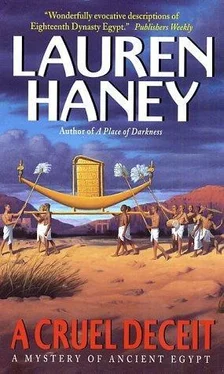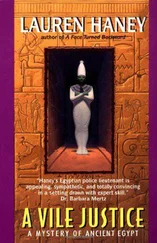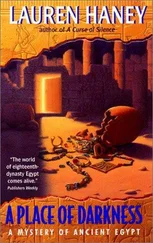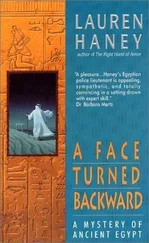Lauren Haney - Cruel Deceit
Здесь есть возможность читать онлайн «Lauren Haney - Cruel Deceit» весь текст электронной книги совершенно бесплатно (целиком полную версию без сокращений). В некоторых случаях можно слушать аудио, скачать через торрент в формате fb2 и присутствует краткое содержание. Жанр: Исторический детектив, на английском языке. Описание произведения, (предисловие) а так же отзывы посетителей доступны на портале библиотеки ЛибКат.
- Название:Cruel Deceit
- Автор:
- Жанр:
- Год:неизвестен
- ISBN:нет данных
- Рейтинг книги:4 / 5. Голосов: 1
-
Избранное:Добавить в избранное
- Отзывы:
-
Ваша оценка:
- 80
- 1
- 2
- 3
- 4
- 5
Cruel Deceit: краткое содержание, описание и аннотация
Предлагаем к чтению аннотацию, описание, краткое содержание или предисловие (зависит от того, что написал сам автор книги «Cruel Deceit»). Если вы не нашли необходимую информацию о книге — напишите в комментариях, мы постараемся отыскать её.
Cruel Deceit — читать онлайн бесплатно полную книгу (весь текст) целиком
Ниже представлен текст книги, разбитый по страницам. Система сохранения места последней прочитанной страницы, позволяет с удобством читать онлайн бесплатно книгу «Cruel Deceit», без необходимости каждый раз заново искать на чём Вы остановились. Поставьте закладку, и сможете в любой момент перейти на страницу, на которой закончили чтение.
Интервал:
Закладка:
“And more wonders are offered to tickle the senses,”
Kasaya said. “The food, the acrobats, the musicians…” He chopped off the rest of the thought, distracted by a sultry young woman passing by.
Bak smiled. “Are you as hungry as I am?”
Hori shook his head. “We ate not an hour ago.”
Clearing his thoughts of death and duty, Bak led the way in among the crowd that filled the large walled court in front of Ipet-resyt. At the back of the court rose the main gate through the high mudbrick wall that enclosed the lord
Amon’s southern mansion and its support buildings. The procession had earlier passed into the sacred precinct, leav ing the court swarming with people. They milled around the flimsy booths amid a buzz of talk and laughter, purchasing what struck their fancy or pausing to watch performances designed to please the eye and excite the senses: acrobats, dancers, and musicians; trained animals and mischievous monkeys; archery contests, pole fights and wrestling matches. Men and women from the land of Kemet shared their joy in the greatest of the gods with dark, smiling strangers from far to the south and bearded and mysterious foreigners from the north. The poor gaped at the wealthy, at their fine jewelry and elaborate, bejeweled wigs. The afflu ent inspected one another’s garb and hairstyles more furtively, but with an equally avid interest. Sharp-eyed po licemen and soldiers walked among them, seeking out thieves and mischief makers.
Attracted by the smell of roasting meat, Bak wove his way to its source, where a man squatted beside an open and very smoky hearth over which was suspended the well cooked carcass of a lamb. He traded garrison tokens for sev eral pieces, a loaf of bread and, at another booth, three jars of beer. Rejoining Hori and Kasaya, he found a section of wall near the rear of the court on which they could sit while they ate. The two young men consumed the food as greedily as he.
From where they sat, they watched the activity around them. Children played tag or hide and seek among the booths and in the crowd, shrieking their delight. Cats and monkeys poked through garbage thrown behind the booths and out side the wall, sniffing out bits of food before it could rot in the heat. Dogs walked among the people, ready to pounce on any edible scrap. Grooms led finely matched teams of horses pulling empty chariots out of the sacred precinct and through the multitude to vanish down a side street.
Their meal finished, Bak climbed atop the wall to scan the court in search of Amonked. He spotted his Medjays scat tered around, watching a variety of performances, but could not find Maatkare Hatshepsut’s cousin. He must have gone with the procession into the sacred precinct.
The number of revelers was increasing dramatically, with people approaching from all directions. The crowd was spilling out of the court and north along the processional way. Additional booths offering innumerable delicacies and temptations were being set up to accommodate the swelling throng. Fresh dancers and musicians and acrobats, wrestlers, stick fighters and boxers streamed into the melee. The sounds of merrymaking must have carried to the far edges of the city.
Bak sent the two young men on their way and set out to find Amonked. At the gate to the sacred precinct, a member of the royal guard noted his baton of office and allowed him to pass through. Inside, a large open court lay between the gate and the deep, columned portico that stood in front of the god’s mansion. The crush of people was intense. The fine clothing worn by most marked them as men and women of wealth and position. The rest were soldiers, priests, and envoys representing the kings of far-off lands.
Booths lined the walls, these containing offerings to the gods: huge mounds of fruits and vegetables; fowl and beef; jars of wine, beer, honey, aromatic oils; vessels of gold and bronze; masses of flowers. Bak could not recall ever seeing such a magnificent display of plenty.
Seven fine steers crowded into a corner, bawling, terrified by the smell of fresh blood. Nearby, butchers were killing, bleeding, and cutting up the animals’ brethren, more gifts to the gods. The air was heavy with the smells of manure, in cense, blood, perfume, and sweat.
He looked the length of the long court toward the south ern mansion of the lord Amon and relived for an instant the first time he had been brought to the ritual, a four-year-old child sitting high on his father’s shoulders. Then as now, he had glimpsed gold-the barques of the gods-over the many heads, but, as before, he could not see his sovereigns.
In spite of himself, in spite of the fact that Maatkare Hat shepsut had exiled him to the southern frontier and the youthful Menkheperre Thutmose held little power, he felt a pang of disappointment.
He spotted Amonked standing not far from the main gate with the chief treasurer Djehuty and Pentu, the governor of
Tjeny. With them were Pentu’s wife and her sister, a man with the shaven head of a priest, and one with white hair who stood as rigid as a soldier. Except for the priest and the older man, all wore sumptuous wigs and jewelry befitting their lofty status.
Amonked saw Bak, spoke a few words to his compan ions, and parted from them to join the policeman. “You’ve news.”
“Nothing of note, I regret to say.” Bak went on to report what he had seen and learned. “Perhaps tomorrow I’ll un earth more, but any further effort today will be futile.”
“Considering the circumstances, you’ve done well.”
Amonked clapped him on the shoulder, smiled. “Now come with me. I understand you met Pentu and Djehuty a few days ago. You must get to know them better.”
Before Bak could offer an objection, Amonked took his arm and ushered him toward the small group. Certain such lofty individuals as the chief treasurer of Kemet and a provincial governor would have no more than a vague mem ory of him standing on the ship with Commandant Thuty, he was surprised by the friendly manner in which the two men greeted him.
“You remember my wife, Taharet, of course.” Pentu took the tall young woman’s hand and gave her an adoring smile.
She bowed her head briefly, acknowledging Bak, and eyed him with an open curiosity that made him feel like a beetle crossing the sand beneath the sharp eye of a curious boy with an empty jar in his hand.
The governor glanced at his wife, passing along a secret thought, and smiled at the other woman. “This is her younger sister Meret, if you recall.”
“Yes, sir,” Bak said, choosing not to point out that he had never met either woman, merely seen them at a distance.
Meret’s eyes twinkled with good humor, as if she recog nized the situation in which he found himself. “We’d newly arrived in Waset and you were on the ship moored behind ours. You were with a garrison commander from the south, I believe.”
“Commandant Thuty, yes.”
“This is Sitepehu, Lieutenant.” Pentu laid his hand on the priest’s shoulder. “He’s high priest of the lord Inheret and a trusted adviser, a friend as close to me as a brother.”
Well formed in body and face, Sitepehu looked to be about forty years of age. An ugly puckered scar on his left shoulder testified to an early career in the army. Inheret was the divine huntsman, an ancient god identified with the lord Shu, son of the lord Re. Tjeny was his primary seat of worship.
The priest smiled, but before he could respond to the in troduction, Pentu beckoned to his side the older man with military bearing. “This is my longtime aide Netermose, a man of infinite patience, whose willingness to assist me in all my endeavors knows no bounds.”
Bak looked upon the aide with interest. The man’s deeply lined and unattractive features seemed not to fit his slight build and softly curling white hair. Most men in his position were much younger, men who would readily accept menial tasks and adapt themselves to their master’s whims in the hope of bettering themselves later in life.
Читать дальшеИнтервал:
Закладка:
Похожие книги на «Cruel Deceit»
Представляем Вашему вниманию похожие книги на «Cruel Deceit» списком для выбора. Мы отобрали схожую по названию и смыслу литературу в надежде предоставить читателям больше вариантов отыскать новые, интересные, ещё непрочитанные произведения.
Обсуждение, отзывы о книге «Cruel Deceit» и просто собственные мнения читателей. Оставьте ваши комментарии, напишите, что Вы думаете о произведении, его смысле или главных героях. Укажите что конкретно понравилось, а что нет, и почему Вы так считаете.












